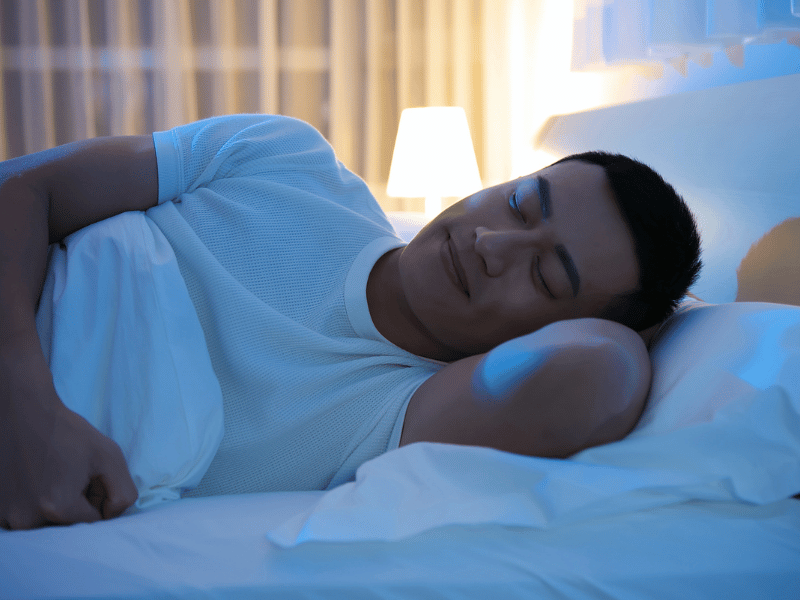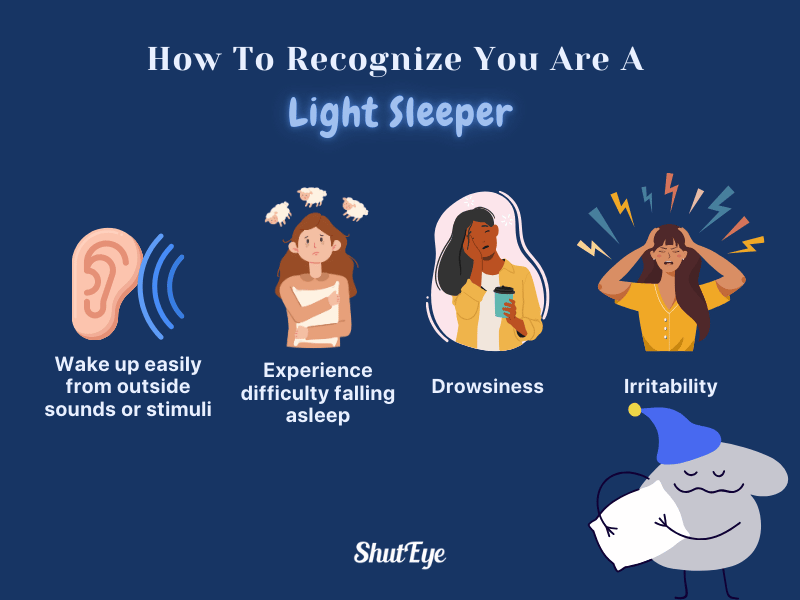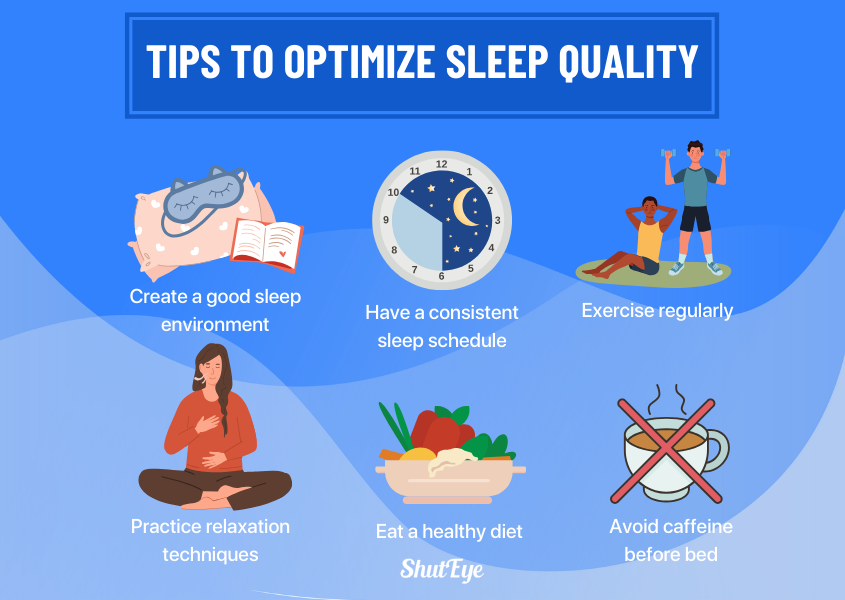


Every night when we drift off to sleep, our bodies go through four stages of sleep in the sleep cycle. Light sleep is one of the most important sleep stages that helps your body to rest and recover. It’s necessary for good quality sleep.
Find out what light sleep is all about, how it is important for us, and tips on getting more of it.

Light sleep is a crucial stage in the sleep cycle that contributes to restful nights. During this stage, your heart rate and respiratory rate slow down, making you less sensitive to noise, temperature changes, and movement. It allows your muscles to relax, your body temperature to decrease, and your brain waves to slow down.

Being a light sleeper means that you tend to wake up easily even with the slightest disturbances such as noise, light, movement, or smell. Light sleepers are generally more likely to experience sleep deprivation and irritability which can negatively affect mental and physical health [1].
Getting a good night’s sleep is essential for our well-being, and understanding the amount of light sleep we need can help us achieve that. Light sleep is an important part of our sleep cycle and overall sleep quality. The duration of light sleep varies from person to person, but on average, it lasts between 10 to 30 minutes in the first sleep cycle.
As the night progresses, the duration of light sleep increases in subsequent cycles. While there is no set amount to get for this sleep stage, we can expect to spend 50% of our total sleep time here [2]. This means that if we sleep for 8 hours, around 3.5 to 4 hours of that should be light sleep.
Additionally, as we start to age, we naturally start to experience less deep sleep and more light sleep.
Light sleep plays a crucial role in our sleep cycle. During this stage, our body enters a state of relaxation, allowing our muscles to unwind and release tension. This promotes a sense of calm and prepares our body for a restful night’s sleep.
Here are some benefits of getting enough sleep at this stage:
Light sleep helps to lower our body temperature, creating the perfect conditions for deep and restorative sleep. When our body temperature drops, it signals to our brain that it’s time to enter a deeper stage of sleep, where our body can repair and rejuvenate itself.
The slowing down of brain waves during light sleep is essential for memory consolidation and learning. It’s during this stage that our brain processes and stores information, helping us retain what we’ve learned throughout the day.
One advantage of light sleep is its ability to reduce sensitivity to noise, temperature changes, and movement. By decreasing your responsiveness to external factors, you create a sleep environment that’s more conducive to uninterrupted rest. This means a quieter, more comfortable sleep environment, helping you wake up feeling refreshed.
The dreams experienced during light sleep tend to be less intense and vivid. This gentle and calming dream state allows for a more undisturbed sleep experience, further enhancing the quality of your restful night.

There are actually four stages: light sleep, deep sleep, REM sleep, and non-REM sleep of which play an important role in your overall well-being [2].
During light sleep, your muscles relax and your body temperature decreases. This stage helps you stay asleep by suppressing your senses and preventing movement. It also helps with memory consolidation, learning, and motor skill development. So, it’s crucial to pay attention to this stage for a truly restful night.
Deep sleep is another important stage. During the deep sleep stage, your body spends its time trying to repair itself, regenerate tissues, strengthen the immune system, and release growth hormones. It’s also essential for maintaining a healthy physical and mental state.
REM sleep (rapid eye movement sleep), is the stage where most dreaming occurs. It’s important for processing emotions, consolidating memories, and stimulating brain activity. During REM sleep, your brain is highly active, similar to when you’re awake.
NREM sleep (non-rapid eye movement sleep), is the stage that encompasses both light sleep and deep sleep. It’s a necessary part of the sleep cycle that helps restore energy and promote overall well-being.

To promote light sleep, it’s important to practice good sleep hygiene. Here are some tips that you can incorporate for your next sleep:
In conclusion, light sleep plays an important role just like any of the other sleep stages. It helps to lower body temperature, consolidate memories, learn, and refine your motor skills. Prioritizing good sleeping habits is the best way to ensure that you are getting enough light sleep each night.
If you struggle to get enough sleep at night, try out the ShutEye® app. ShutEye® is an advanced sleep-tracking app that analyzes your sleep cycles to help you find the best sleep solution to optimize it. Try it FREE for 7 days!
Ferrarelli, L. K. (2023) Light sleeper? Eat more protein. Science Signaling, 6(779) [online]. Available at: https://doi.org/10.1126/scisignal.adh9952
Patel A.K., Reddy V., Shumway K.R., Araujo, J.F. (2024) Physiology, Sleep Stages [online]. Available at: https://www.ncbi.nlm.nih.gov/books/NBK526132/